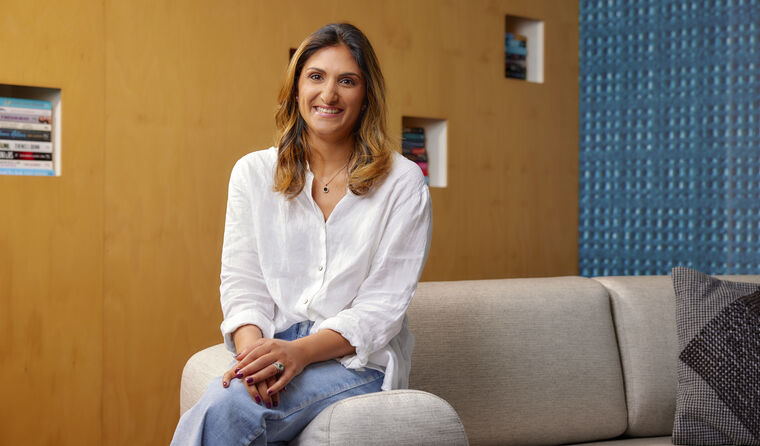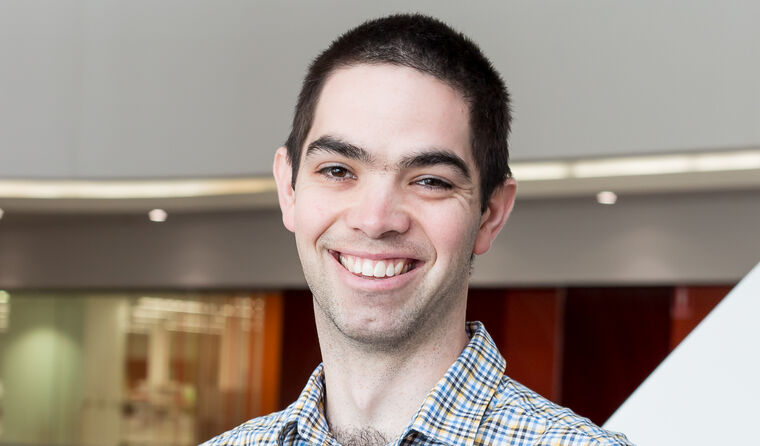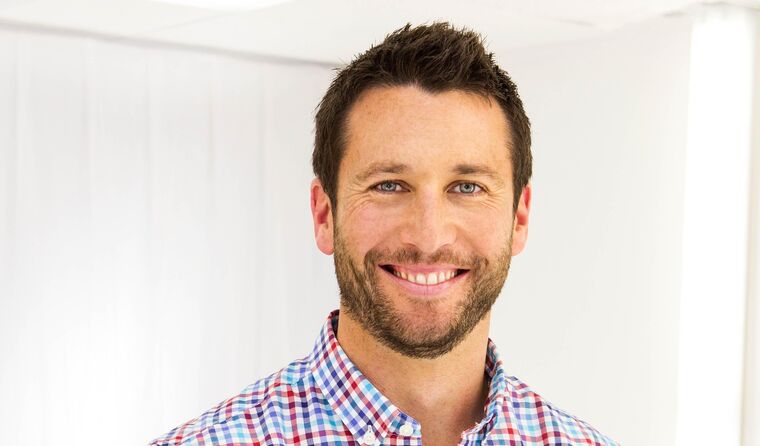Feature
When celebrities and influencers talk health: Part 1
From Kylie Minogue to Shane Warne, celebrities can have an undeniable influence on public health messaging. In a two-part article, newsGP speaks to five doctors about the celeb effect.
 Celebrities and influencers can have a profound effect on the public and its perception of illness.
Celebrities and influencers can have a profound effect on the public and its perception of illness.
When 46-year-old US actor Ryan Reynolds recently had a colonoscopy as part of American guidelines to do so for over-45 bowel cancer screening, his doctor found one polyp and commended him for ‘interrupting the natural history of a disease … that could have ended up developing into cancer’.
This prompted some Australian media sites like the ABC and The Conversation to discuss his case and the differences in the Australian system, where bowel cancer screening starts at 50 and involves a faecal occult blood test (FOBT).
Sometimes simply mentioning a treatment or intervention a celebrity uses can create a firestorm – but not always with positive outcomes.
Elon Musk recently spoke about his appreciation for semaglutide for weight loss when it’s already getting free press for its purported Kardashian use. Meanwhile, Australians with diabetes are having to seek out alternatives until at least 2023 due to ongoing supply issues.
Celebrities and, more recently, influencers, have had a profound effect on the public and its perception of illness, as well as the propensity to engage with screening or treatment.
Some go in the face of evidence. Think Gwyneth Paltrow and jade inserts for vaginas. Pete Evans and ‘biochargers’. Madonna and urine drinking. Kardashians and weight-loss treatments.
Others are framed more positively, like Kylie Minogue and breast cancer, Sam Newman and prostate cancer, Angelina Jolie and BRCA, even as far back as Shane Warne and smoking.
However, what if even these seemingly reasonable, feel-good stories about life-saving screening goes against medical advice? How do we manage the resulting risks of overdiagnosis and overtreatment?
It also begs the question, given their already demonstrated reach, should we try to better harness the power of celebrity for improved health outcomes?
When the World Health Organization has 12.2 million Instagram followers but Kim Kardashian has 332 million, and the Australian Medical Association has 33,000 on Twitter but Kylie Minogue has 2.2 million, the influence of celebrity is undoubtable.
newsGP spoke to five doctors, some at a unique intersection between celebrity and medicine, to canvass their reflections on these questions and other outcomes when it comes to celebrities and health. They were:
- Dr Preeya Alexander, a GP who runs a health website and popular Instagram page
- Dr Ginni Mansberg, a GP, author and television doctor
- Dr James Kite, a lecturer of disease prevention and health promotion at Sydney School of Public Health
- Associate Professor David Smith, an epidemiologist and health service researcher at The Daffodil Centre, Prostate Cancer stream
- Dr Sam Hay, a GP and radio and television doctor
The benefits
‘Celebrities or influencers can have a significant role in communicating health messages, particularly so when their own story is compelling or click-bait worthy,’ Associate Professor Smith told
newsGP.
‘There are multiple examples including Kylie Minogue, Jade Goody, Angelina Jolie, Stephen Fry and Ryan Reynolds, among many others.
‘We know that celebrity endorsement can change behaviours. A few years ago, Sam Newman’s publicity around his diagnosis and treatment for prostate cancer saw a peak in PSA testing in Australia and particularly in younger men from states and territories with a strong AFL following.
‘In April 2008, the month after the Channel Nine story on Newman’s treatment, [we] saw the most PSA tests ordered per month in Australia on record, about a 30% increase on the average monthly number of tests in the year prior.’
Dr Alexander told
newsGP she has seen similar benefits.
‘There are wonderful things that can come out of influencers and celebrities sharing their stories,’ she said.
‘People consider vaccination, book in for their cervical cancer screening test or skin check or book their screening mammogram.
‘We need to acknowledge that some good can come out of this.
‘When Shane Warne died, many of us saw more men in our consulting room keen to engage in preventive health discussions. When celebrities share their diagnosis of skin cancer or breast cancer it can often motivate people to book in with their GP and check in with their own health.
 GP Dr Preeya Alexander says it can take a lot of time and effort to explain why a health recommendation from a celebrity is not necessarily best practice.
GP Dr Preeya Alexander says it can take a lot of time and effort to explain why a health recommendation from a celebrity is not necessarily best practice.
‘During the pandemic we’ve seen people delay preventive health checks and put things on the back-burner. We should be harnessing whatever we can to get people back on the preventive health train.’
Dr Hay told
newsGP he also sees the effect celebrities can have on men.
‘People like to hear from someone they relate to, so when Scotty Cam talks, they say, “Oh, I get it”. There’s a lot of power in that,’ he said.
‘When they [celebrities] are in support of organisations and campaigns that have evidence behind them, they are a voice for good and are incredibly powerful. It can get the message out to the general public.
‘When Shane Warne died, we categorically saw more people get heart checks. It was ultimately very powerful as a relatable man who is loved and revered. His larrikin Australian persona suddenly was seen as infallible.
‘I saw the blip of people coming in after that and from a health perspective, we can harness that.’
For Dr Mansberg, two other positive celebrity influences on population health have been Angelina Jolie’s breast cancer and the increase in openly talking about menopause.
‘Angelina Jolie discussing her BRCA diagnosis was very helpful for genetic breast cancers. It was good and brave of her, particularly when there was negative stuff in the media,’ she told
newsGP.
‘More recently, menopause has had an amazing renaissance. All of a sudden, women are coming out as menopausal.
‘There was a perception that they were invisible and that they didn’t matter but there is an enormous movement now.
‘Gwyneth Paltrow, Michelle Obama and Kim Cattrall have talked about it. Doctors have been asleep at the wheel – for example, those who graduated during the Women’s Health Initiative trial.
‘There are still black box warnings on hormone replacement, including on vaginal oestrogen which can be safe even for breast cancer patients. There is a lag and too many doctors are too scared to prescribe hormone replacement.
‘They [celebrities] talk openly that it’s not a universally terrible phase of life, how it’s good in some ways and if doctors don’t communicate effectively, then celebrities can fill the space.
‘With the rise of the menopausal influencer, the Australian Menopause Society [AMS] has grown in 2022 by 25%.’
The pitfalls
Dr Kite told
newsGP the role of celebrities on health ‘is a tricky issue’.
‘There is potential to use celebrities and celebrity health events to try to achieve public health goals, but we also have to guard against misinformation and disinformation,’ he said.
‘There is plenty of evidence to show that celebrities can influence the behaviour of fans and followers, including via social media.
‘Sometimes this is outright bad. [For example], Pete Evans and his
anti-vaccination promotion.
‘Sometimes there are benefits and harms, like the death of Robin Williams, which in some cases prompted help-seeking behaviours and reduced stigma, but in others reduced help-seeking behaviours, depending on the media people were exposed to.’
Because of this mix of harms and benefits, Dr Kite believes it is difficult to know what the best response is to this type of health-focused media coverage.
‘On the one hand, celebrities have a powerful voice and greater access to media and public attention that could be useful in achieving public health goals,’ he said.
 Dr James Kite says celebrities have a powerful voice and greater access to media and public attention that could be useful in achieving public health goals.
Dr James Kite says celebrities have a powerful voice and greater access to media and public attention that could be useful in achieving public health goals.
‘But on the other, we obviously don’t want people getting treatment or undergoing testing that is unlikely to be helpful or, worse, where the risk of harm outweighs any potential benefit.’
Professor Smith told
newsGP while celebrities can help raise awareness, they can lead to harmful overtreatment and also place a strain on health services if not carefully communicated.
‘Examples include the spike in young women seeking mammographic screening when Kylie Minogue was diagnosed with breast cancer aged 36 in 2005, and others inquiring about genetic risk of breast and ovarian cancer following Angelina Jolie’s decision 10 years ago to have radical surgery after being identified with the BRCA1 gene,’ he said.
‘Around 5% of breast cancers and 15% of ovarian cancers are associated with inherited gene faults.
‘Expert professional services such as genetic counselling can be critical to ensuring that people responding to celebrity health stories are receiving optimal care and avoiding interventions that could cause more harm than benefit.’
According to Professor Smith, the promotion of prostate cancer testing is an ‘interesting case study’.
‘Ben Stiller is one of many prominent people who have gone public with their prostate cancer experience to promote testing,’ he said.
‘The problem is that the story often gets summarised into a quote or heading [like] “
Taking the PSA test saved my life – Ben Stiller”.
‘The full picture regarding public health messaging is
far more nuanced and should involve an individual being informed about both the benefits and the
harms of testing and treatment.’
The responsibility of promoting public health messages
Dr Mansberg, Dr Alexander and Dr Hay inhabit the realm of celebrity and influencer, as well as being doctors.
Dr Mansberg says that comes with responsibility and recalls an incident several years ago when she made a mistake on a television program.
‘I was eviscerated for it, rightly,’ she said. ‘I went to great lengths to restore trust. I apologised and was supported by colleagues.’
Some questionable health advice is not mistaken, but intentional. While Gwyneth Paltrow has shed a light on menopause, she has also spruiked dubious remedies, according to Dr Mansberg.
‘Gwyneth Paltrow has made a lot of money by stoking the fears of women,’ she said.
‘Her jade insertions for vaginas plays into stereotypes that after babies, women’s vaginas are large and need fixing. That their partners will leave them and that this thing can help them get a healthier vagina.
‘This is of great concern and yet there are huge amounts sold.’
Issues like this prompted Dr Alexander to take action.
‘The main reason I started my Instagram profile was to combat health misinformation,’ she said.
‘The job is getting harder and harder, even as a qualified health professional with a platform on Instagram, to combat stuff like [claims] from Ryan Reynolds and Ben Stiller, who have millions of followers.
‘Celebrities and influencers need to be very careful that they don’t suggest to people that just because they had a particular investigation performed that it’s the right thing for everyone. I think that’s the issue we are having currently.
‘A movie star declares that a colonoscopy saved his life and could save yours too, but most of the audience doesn’t require one. Sharing one’s journey isn’t the issue, it’s the subtle, “You should do it too” [and] “It’s the best blood test I ever did, get one as well” that’s problematic.’
 Dr Sam Hay believes celebrities and health are a double-edged sword.
Dr Sam Hay believes celebrities and health are a double-edged sword.
Dr Alexander says it can often take a lot of time and effort during a consultation to explain why a health recommendation from a celebrity is not necessarily best practice.
‘During the pandemic I think a lot of us were shocked at how powerful influencers with platforms could be in the health space,’ she said.
‘Whilst many used their platforms to support public health campaigns, many did not and the consequences of that were massive.
‘I saw first-hand influencers with platforms, often very large ones, undermine public health initiatives at a time when they were critical. That was both terrifying to witness and thoroughly exhausting to combat in both the consulting room and on social media as a qualified health professional.’
Dr Hay calls celebrity and health a double-edged sword.
‘The biggest challenge is that influencers and celebrities have loud voices because people love them, but when they jump on an uneducated bandwagon or are influenced by borderline evidence or pseudoscience, it can be problematic,’ he said.
‘Definitely not everybody is doing harm. Some mean well but don’t understand they are doing harm but when they realise, they apologise or clarify.
‘With the COVID crisis it was ridiculous, particularly the issue with vaccination. There was frustration for a good proportion of Australians. We have the best minds and doctors, that we trust for everything else and they are the people to listen to, not the cooks and social influencers.’
Dr Mansberg sees some ways the medical establishment could have communicated better in relation to COVID vaccinations.
‘We made some very big promises about COVID vaccines, that they would improve our lives. Now we know they reduce hospitalisation and death but don’t decrease the risk of catching it, particularly Omicron,’ she said.
‘Some patients felt dismissed by doctors, particularly when we said that the vaccines didn’t impact on menstrual cycles.
Now we know they do, but not fertility.
‘This can dash our own credibility and the problem then is people not wanting other vaccines and attributing other conditions to the vaccine, because we weren’t so open to the nuance.
‘We need to not be so simplistic and we could collaborate better.
‘I think [Adjunct Professor] Karen Price has been the best RACGP President, she is such a good communicator and is credible. She has done a good job of speaking sensibly and representing GPs.
‘We need more people like that.’
Professor Smith also highlights the impacts of open-forum discussion.
‘One of the positive things about media or social media attention of a health issue, diet, or lifestyle is that it opens up an avenue for discussion about what is known and how strong the evidence is,’ he said.
‘Unfortunately, when there is polarisation around an issue this can create confusion to the public, controversy within the profession and stagnation in attempting to move the debate forward. I think we have witnessed this with prostate cancer testing issues, where some of the media thrives off the controversy played out in the public eye as the headlines of dissent sell the stories.
‘It can be hard not to get drawn into this. Again, the key is having a solid scientific evidence base upon which concise and actionable public health messages can be made.’
In part two of this article, our five doctors will talk social media disclaimers, paid ads and potential remedies.
Log in below to join the conversation.
celebrity influencer public health social media
newsGP weekly poll
Are you interested in prescribing ADHD medication?